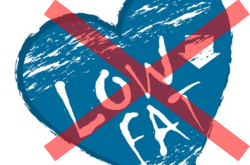A new study published Feb. 29, 2016, in the journal SLEEP, has found that a lack of sleep can cause overeating, poor food choices and weight gain. Sleep loss activates this process, by intensifying and prolonging a chemical signal in the blood which boosts pleasure gained from eating sweet or salty, high-fat snack foods.
The purpose of the investigation was to better understand how the endocannabinoid system linked a lack of sleep with weight gain. During the study, researchers analyzed hunger and eating habits of 14 healthy men and women in their 20s. The subjects were observed in two different situations: a four-day period where they averaged 7.5 hours of sleep, and a four-day period where they averaged 4.2 hours of sleep. In both situations, subjects ate the same meals three times a day, at 9 a.m., 2 p.m., and 7 p.m.
Over these periods, researchers examined blood levels of endocannabinoids. After a standard night’s sleep, 2-AG levels were low in the morning, climaxing in the early afternoon and decreasing shortly after lunch. However, after limited sleep, 2-AG levels were about 33% higher than they were after a standard night’s sleep. 2-AG levels also climaxed at 2 p.m., 90 minutes later, and remained raised until about 9 p.m.
Another difference noted between the regular and restricted periods of sleep was hunger levels. After limited sleep, subjects had significantly increased hunger levels. This was demonstrated when subjects were presented with snack foods on the fourth night of limited sleep. Subjects who had limited sleep selected foods with double the calories and fat than when they had had regular amounts of sleep.
“We found that sleep restriction boosts a signal that may increase the hedonic aspect of food intake, the pleasure and satisfaction gained from eating… if you have a Snickers bar, and you’ve had enough sleep, you can control your natural response, but if you’re sleep deprived, your hedonic drive for certain foods gets stronger, and your ability to resist them may be impaired. So you are more likely to eat it. Do that again and again, and you pack on the pounds,” said Erin Hanlon, PhD, a research associate in endocrinology, diabetes and metabolism at the University of Chicago.
Source: University of Chicago Medical Center. “Sleep loss boosts hunger, unhealthy food choices.” ScienceDaily. ScienceDaily, 29 February 2016. <www.sciencedaily.com/releases/2016/02/160229221045.htm>.





Comments (0)